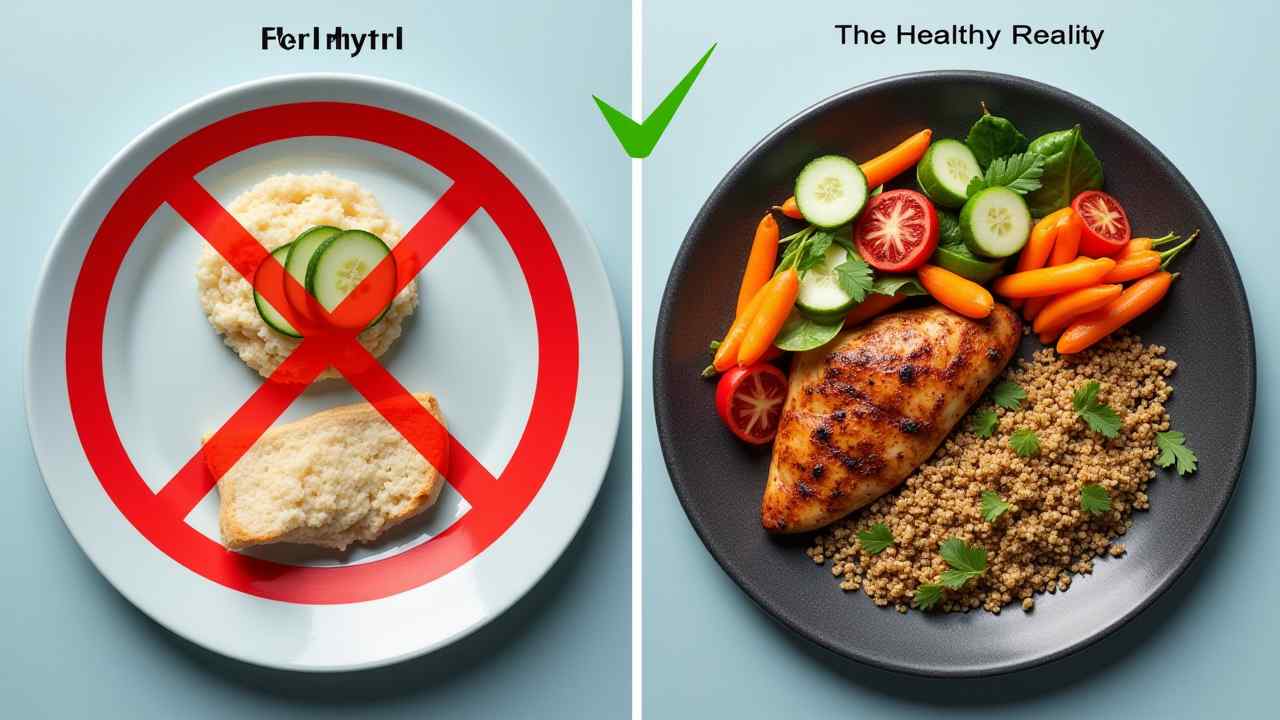
⚠️ The Truth About the 'Model Diet' (A Doctor's Warning)
⚠️ The Truth About the 'Model Diet' (A Doctor's Warning on Extreme Restriction) ⚠️
❗ CRITICAL HEALTH AND SAFETY WARNING: The term "model diet" is often associated with extreme and dangerous eating behaviors that are a form of an eating disorder. These diets are not healthy, sustainable, or recommended by any medical professional. If you are struggling with your relationship with food, please seek help from a doctor or a mental health professional. Help is available and you are not alone.
The idea of a "model diet" is surrounded by myths and glamour. It promises a shortcut to a very specific, often unattainable, body type. People searching for this diet are usually looking for the secrets to how fashion models stay so thin. However, the reality behind these rumored diets is often dark and dangerous.
This guide will expose the truth behind the myth. We will detail the severe health risks of these extreme diets. Most importantly, we will show you what a truly healthy diet for a strong, lean body actually looks like. Let's separate the dangerous fiction from the healthy facts. 🚫
🤔 What is the Mythical "Model Diet"?
There is no single, official "model diet." The term usually refers to a collection of highly restrictive and unhealthy eating habits. These are often based on rumors and extreme examples from the fashion industry. These diets are a form of starvation.
The common themes of these dangerous plans include:
- Extreme Calorie Restriction: Consuming a dangerously low number of calories per day.
- Elimination of Food Groups: Cutting out all carbohydrates or fats.
- Unhealthy Habits: Relying on appetite suppressants like caffeine and nicotine to avoid eating.
- What Are the Severe Health Dangers of This Approach?
Following a diet like this is not a path to health. It is a path to severe medical complications. Starving your body of the energy and nutrients it needs can have devastating consequences.
The risks include:
- Nutrient Deficiencies: Leading to hair loss, brittle nails, and poor skin health.
- Muscle Wasting: Your body will start to break down its own muscle tissue for energy.
- Hormonal Disruption: This can cause the loss of menstrual periods in women and other endocrine problems.
- Severe Mental Health Issues: This type of restriction is a hallmark of eating disorders like anorexia nervosa. It can lead to a lifelong battle with food and body image.
✅ What is the Real Healthy Diet for a Strong, Lean Body?
The modern, healthy approach that many successful models and athletes follow today is the opposite of starvation. It is about fueling the body, not depriving it. The goal is to build a strong, toned physique. This requires proper nutrition and exercise.
A truly healthy "model" of eating focuses on:
1. Prioritizing Lean Protein: Protein is essential for building and maintaining the lean muscle that creates a "toned" look. Every meal should include a source like chicken, fish, eggs, tofu, or lentils ("mercimek").
2. Filling Up on Vegetables: Vegetables are packed with fiber and nutrients. They provide volume to keep you full without adding a lot of calories. A large, colorful salad ("salata") is a true health food.
3. Including Healthy Fats: Fats from sources like avocado, nuts ("ceviz"), and olive oil ("zeytinyağı") are crucial for hormone health and feeling satisfied.
4. Incorporating Strength Training: A strong, lean look comes from having muscle. A consistent strength training routine is the key to building a powerful and healthy body. 💪
Your health journey should be about nourishing and strengthening your unique body, not about chasing an unrealistic and dangerous ideal. Focus on building strength and fueling your body with delicious, whole foods. That is the true secret to looking and feeling your best. ❤️